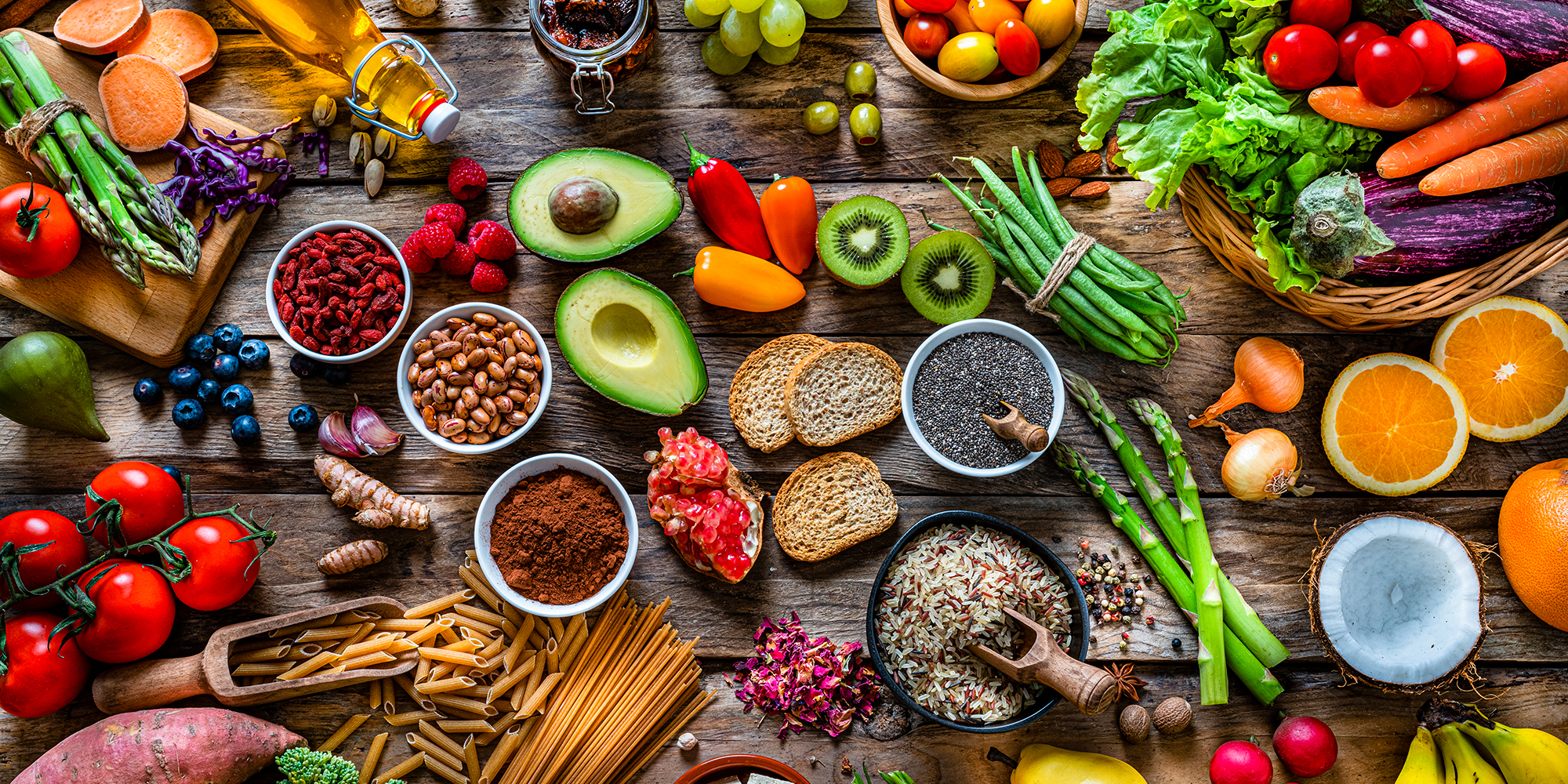What to Eat to Improve Your Cholesterol and Heart Health
February 18, 2016
Categories: Heart & Vascular, Health & Wellness
By Loyola Medicine's registered dieticians, Nutrition Services
High cholesterol. Low cholesterol. Good fats. Bad fats. LDL. HDL.
We often hear these terms and how important they are in our heart's health, but what do these terms actually mean and how do they affect our heart's health?
Eating a healthy balance of protein, carbohydrates and fat is important, but getting the right levels of cholesterol is very important, too.
First, you need to know what cholesterol is and what it does. Cholesterol is a waxy substance that occurs naturally in all parts of the body.
The liver produces cholesterol because your body needs it to function properly. But too much cholesterol in your bloodstream can contribute to heart attack and stroke.
What is considered good cholesterol and what is considered bad cholesterol?
Cholesterol is carried through your bloodstream by two types of lipoprotein – high-density and low-density.
What is low-density lipoprotein cholesterol (LDL)?
Low-density lipoprotein cholesterol (LDL-C), bad cholesterol, contributes to a thick, hard substance in your arteries called plaque. Plaque can clog and narrow arteries and make them inflexible, which can lead to heart attack and stroke.
What is high-density lipoprotein cholesterol (HDL)?
High-density lipoprotein cholesterol (HDL-C) is described as good cholesterol because doctors and researchers believe HDL can help carry LDL through the arteries, to the liver and out of your system. How fat affects your cholesterol depends on the kind of fat you eat. Saturated and trans fats increase your level of LDL-C, bad cholesterol. Foods high in saturated fat include:
- Fatty meat
- Poultry skin
- Bacon and sausage
- Whole milk, cream and butter
Trans fats are found in:
- Shortening and stick margarine
- Fried foods
- Packaged foods made with hydrogenated oils such as baked goods and chips.
Monounsaturated and polyunsaturated fats contribute to higher HDL-C, good cholesterol. Foods rich in these fats are:
- Nuts and seeds
- Avocados
- Ground flaxseed
- Olive and canola oil
- Fish
Note: Although these are heart healthy, remember all fats are high in calories. So eat the right portions.
Tips to improve your cholesterol
Here are some ways you can improve your cholesterol:
- Limit the amount of saturated and trans fat you eat.
- Eat foods high in mono- and polyunsaturated fat.
- Eat a variety of fish high in Omega 3 fatty acids twice a week, such as salmon, sardines, mackerel, trout, tuna and herring.
- Choose low-fat dairy products, which include:
- Skim, 1% or 2% milk
- Non-fat or low-fat cottage cheese
- Non-fat or low-fat Greek yogurt
- Light cheese (3-5 grams of fat per serving)
- Avoid processed cheese, such as American cheese.
- Eat five servings a day of fruits and vegetables. (But don't add high fat-sauces, salt, butter or cheese).
- Get more fiber into your diet. Although both soluble and insoluble fiber offer health benefits, soluble fiber has been shown to help lower your LDL cholesterol when combined with a diet low in saturated fat.
- Include a variety of beans and lentils in your diet
- Eat whole grain foods and choose breads, cereals, crackers and other grain products that have more than 3 grams of fiber per serving.
Now that you know what types of foods to eat, here are a few reliable resources for finding nutritious recipes that are good for your heart:
To take care of your heart and your health, eat cholesterol-friendly foods, try some healthy recipes and talk to your doctor about your cholesterol level.
Loyola’s registered dietitians are skilled in nutrition therapy and hold advanced certifications in a range of specialties, such as weight loss, oncology, diabetes management and nutrition support.
They provide care for adults and children, including newborns and offer nutrition services that fit your individual health goals in several convenient locations.
Book an appointment today to see any of Loyola Medicine's specialist by self-scheduling an in-person or virtual appointment using myLoyola.
